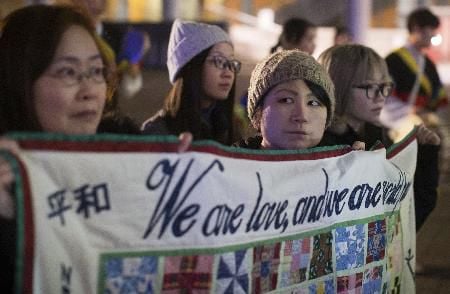Korea S Nuclear Program 2007 Dodge

North Korea needs its nuclear program to protect itself from the U.S. Nuclear threat, and therefore will “march forward” with its program in defiance of international objections, a senior diplomat told the United Nations Security Council on Friday. 'Our possession of nuclear weapons was an individual self-defensive means of defending our sovereignty and right of existence and development from the U.S.
North Korea needs its nuclear program to protect itself from the U.S. Nuclear threat, and therefore will “march forward” with its program in defiance of. Various diplomatic means have been used by the international community to attempt to limit North Korea's nuclear program. Elixir Industries Power Converter Manual Treadmill. Nuclear weapons. In February 2007. So how did North Korea achieve it’s nuclear. Front companies to fund it’s weapons program. How North Korea has managed to dodge sanctions and.
Nuclear threat,' said Ja Song Nam, the North Korean permanent representative to the United Nations. “If anyone is to blame for it, the U.S. Is the one who must be held accountable.” “[North Korea] will march forward and make great advancement [in its weapons program],' he added. That was a and other leading diplomats who condemned the regime’s development of nuclear weapons and ballistic missiles.
The North Korean official crowed that the United States is “terrified by the incredible might of our republic” following the latest successful missile launch while maintaining that the program is necessary to protect the regime from American threats. “The development and advancement of the strategic weapons of [North Korea] are entirely to defend the sovereignty and the territorial integrity of the country from the U.S. Nuclear blackmail policy and nuclear threat and to ensure the peaceful life of the people,” Ja said. Tillerson dismissed those defenses, particularly Ja’s claim that the regime’s withdrawal from the Non-Proliferation Treaty allows them to develop the weapons systems.
“I think we’ve heard all of these things before from this government,” he replied. “There is no doubt that [North Korea’s] pursuit of a nuclear arsenal is in clear violation of international law, directly challenges the non-proliferation regime, and greatly threatens international peace and security. Download Free Software Integrated Environmental Modeling Ramaswami Pdf.
This body has unanimously made these points for well over a decade now.” The North Korean official, however, argued that U.S. Complaints about the regime’s program are hypocritical given the size and scope of the American nuclear arsenal. “I believe that if the nonproliferation issue is to be discussed, the first country to be brought before the court of justice is the U.S.,” Ja said. “The DPRK is a responsible nuclear power and a peace-loving state,” he also said, using the official acronym for the regime. Tillerson contradicted that statement while also replying to in the region have contributed to the crisis.
“There is but one party that has carried out the illegal detonation of nuclear devices,” Tillerson said. “There is but one party that continues to launch intercontinental ballistic missiles in violation of UN Security Council resolutions — overflying another sovereign nation, Japan, [and] threatening civil aviation security because these launches are taken with no notification... They alone must take responsibility for these tensions. And they alone can solve these tensions.”.
KNS/AFP/Getty Images • The US has sanctioned two officials it calls 'key leaders' of North Korea's nuclear weapons program. • The sanctions block the men from any property or transactions from American citizens. • The move follows UN sanctions and is part of President Donald Trump administration's 'maximum pressure campaign.' WASHINGTON (AP) — The U.S.
Treasury Department issued sanctions Tuesday against two officials it describes as 'key leaders of North Korea's unlawful weapons programs.' The sanctions against Kim Jong Sik and Ri Pyong Chol block them from any property or interests in property within U.S. Jurisdiction, and prohibit them from transactions with American citizens.